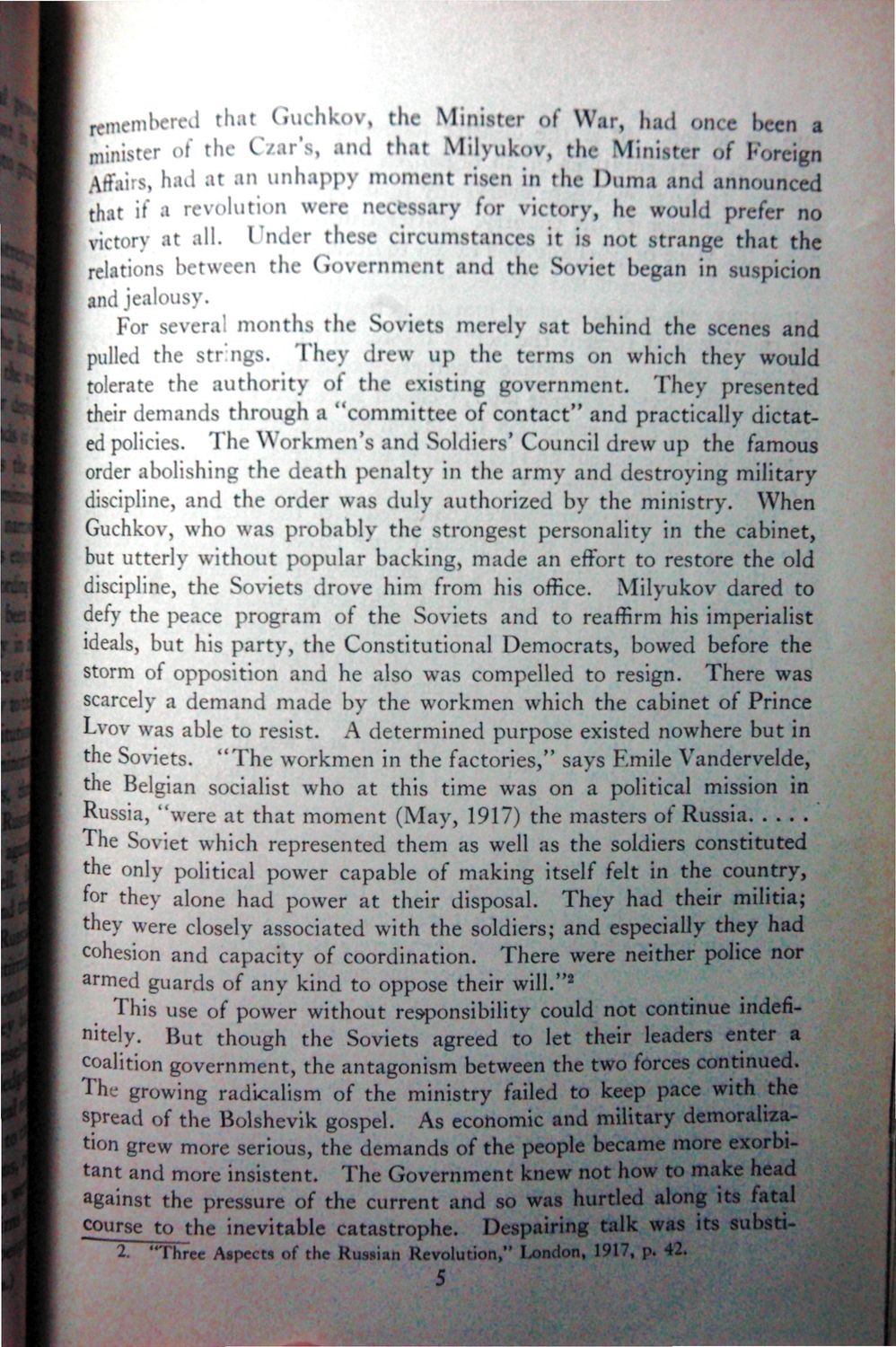| |
| |
Caption: War Publications - WWI Compilation 1923 - Article 22
This is a reduced-resolution page image for fast online browsing.

EXTRACTED TEXT FROM PAGE:
remembered that Guchkov, the Minister of War, had once been a minister of the Czar's, and that MUyukor, the Minister of Foreign Affairs, had at an unhappy moment risen in the Duma and announced that if a revolution were necessary for victory, he would prefer no victory at all. Under these circumstances it is not strange that the relations between the Government and the Soviet began in suspicion and jealousy. i For several months the Soviets merely sat behind the scenes and pulled the strings. They drew up the terms on which they would tolerate the authority of the existing government. They presented their demands through a "committee of contact" and practically dictated policies. The Workmen's and Soldiers' Council drew up the famous order abolishing the death penalty in the army and destroying military discipline, and the order was duly authorized by the ministry. When Guchkov, who was probably the strongest personality in the cabinet, but utterly without popular backing, made an effort to restore the old discipline, the Soviets drove him from his office. Milyukov dared to defy the peace program of the Soviets and to reaffirm his imperialist ideals, but his party, the Constitutional Democrats, bowed before the storm of opposition and he also was compelled to resign. There was scarcely a demand made by the workmen which the cabinet of Prince Lvov was able to resist. A determined purpose existed nowhere but in the Soviets. "The workmen in the factories/' says Emile Vandervelde, the Belgian socialist who at this time was on a political mission in Russia, "were at that moment (May, 1917) the masters of Russia The Soviet which represented them as well as the soldiers constituted the only political power capable of making itself felt in the country, for they alone had power at their disposal. They had their militia; they were closely associated with the soldiers; and especially they had cohesion and capacity of coordination. There were neither police nor 1 armed guards of any kind to oppose their will." This use of power without responsibility could not continue indefinitely. Hut though the Soviets agreed to let their leaders enter a coalition government, the antagonism between the two forces continued. The growing radicalism of the ministry failed to keep pace with the spread of the Bolshevik gospel. As economic and military demoralization grew more serious, the demands of the people became more exorbitant and more insistent. The Government knew not how to make head against the pressure of the current and so was hurtled along its fatal course to the inevitable catastrophe. Despairing talk was its substi2. 'Three Afpects of the Rusnian Revolution/' London, 1917, p. 42. 5
| |